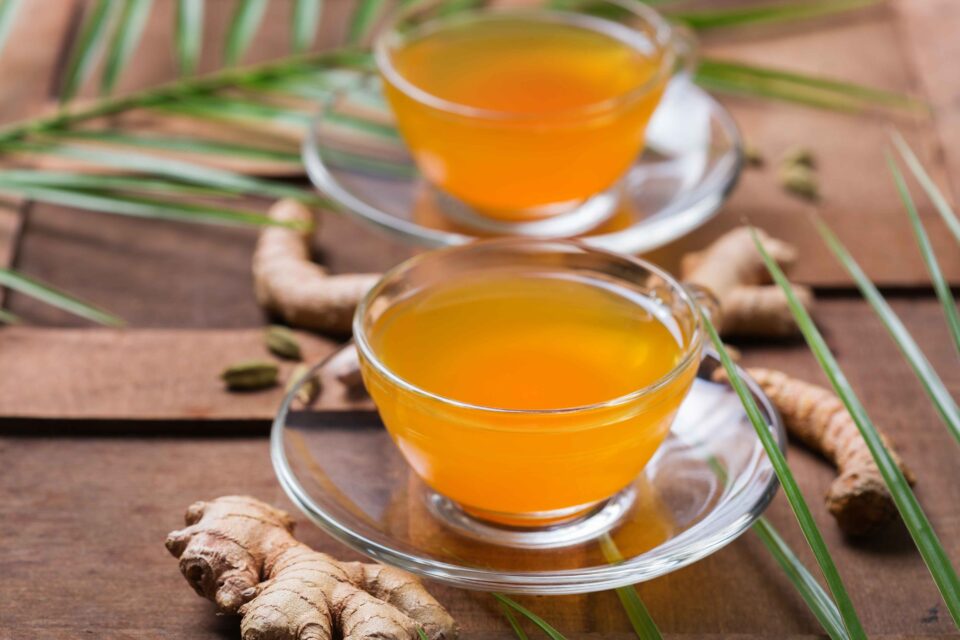Chronic inflammation is a major cause of many chronic diseases.
Studies show that chronic inflammation is the leading cause of heart disease, diabetes, cancer, arthritis, and bowel diseases. Increased stress, low activity levels, and poor food choices are some of the major causes of inflammation.
Ayurveda suggests natural ways to reverse chronic inflammation.
Top 10 natural anti-inflammatory foods –
Berries
Berries can help boost our immunity and reduce the risk of heart disease.
These fruits are packed with fiber, vitamins, and minerals. They are rich in an antioxidant called anthocyanins. Berries have anti-inflammatory effects that are proven to reduce the risk of several chronic diseases. A study revealed that people who consumed berries every day produced more natural killer cells. Natural killer cells help strengthen your immune function.
Strawberries, blueberries, raspberries, and blackberries are some of the excellent choices.
Also read: Is hot milk and honey a toxic combination
Green tea
Green tea exhibits potent anti-oxidizing and anti-inflammatory properties.
It contains epigallocatechin-3-gallate (EGCG). EGCG inhibits inflammation by reducing pro-inflammatory cytokine production. Green tea also contains Catechin polyphenols that help fight free radicals.
Research shows that drinking green tea is associated with a reduced risk of heart disease, cancer, Alzheimer’s disease, obesity, and other chronic conditions.
Also read: The surprising health benefits of Green Tea
Avocados
Avocados are packed with many essential nutrients.
It is rich in potassium, magnesium, fiber, and heart-healthy monounsaturated fats. They are also rich in antioxidants and exhibit anti-inflammatory properties. Studies have found that consuming Avocado is associated with reduced cancer risk.
Also read: Power of Avocados
Grapes
Grapes contain anthocyanin which is known to reduce inflammation.
It is also a rich source of resveratrol, another antioxidant with many health benefits. Studies show that these antioxidants can protect your heart against inflammation. Grapes are also associated with a decreased risk of arthritis, diabetes, obesity, Alzheimer’s, eye disorders, and diseases related to ageing.
Also read: Amazing health benefits of Raisins
Turmeric
One of the best natural healers, turmeric is known for its anti-inflammatory properties. Turmeric contains a compound called curcumin which is a powerful anti-inflammatory agent. Curcumin is very effective in reducing the inflammation-related risks of diabetes, osteoarthritis, and other diseases.
Also read: Healing powers of turmeric
Tomatoes
Tomatoes are a rich source of vitamin C, potassium, and lycopene. Lycopene is an antioxidant with strong anti-inflammatory properties. Studies show that tomatoes have heart-protective properties. Lycopene is also associated with a reduced risk of several types of cancers.
Research shows that consuming tomato juice can help reduce inflammation.
Also, read:10 easy and healthy ways to make salads
Green vegetables
Green leafy vegetables are super rich in nutrients.
They are rich in antioxidants and anti-inflammatory flavonoids. Studies have shown that eating leafy vegetables every day can protect your body against oxidative stress and inflammatory diseases. Green leafy vegetables such as spinach, kale, and broccoli contain disease-fighting phytochemicals.
Also read: Health benefits of Malabar spinach
Chia seeds
Chia seeds are a rich source of anti-oxidizing and anti-inflammatory properties.
They are proven to reverse inflammation, regulate cholesterol, and lower blood pressure. Chia seeds are very good for your heart health. They can also reduce the risk of arthritis caused by oxidative stress.
Also read: Chia seeds for health
Pepper
Bell pepper and chili pepper are loaded with vitamin C and antioxidants.
They also show powerful anti-inflammatory effects that can reduce the risk of chronic diseases like diabetes. Chilli peppers also contain certain compounds that promote healthier ageing.
Also read: Discover the health benefits of Garam masala
Ginger
Ayurveda hails the use of ginger for its health-protective properties.
Ginger is an immune modulator that can help reduce the risk of inflammation. It boosts your immunity and helps break down the accumulation of toxins in the body. Research also says that ginger is effective in treating inflammation in allergic disorders.
Also read: Health benefits of Ginger and Honey
Inflammatory Foods to Avoid
While adding anti-inflammatory foods to your diet, you must also make sure to cut down the intake of inflammatory foods. Foods that are highly processed or fried, stale or frozen should be avoided. Also, sugar-sweetened beverages, processed meat, and transfats are inflammatory in nature.
Also read: Health benefits of purple foods
Pro tips for reducing inflammation
- Drink ginger and turmeric tea every day to reduce inflammation.
- A glass of tomato, beetroot, and carrot juice can help protect your body against chronic diseases.
- You can also have pineapple or orange juice on some days.
- Cherry juice made at home can also help fight inflammation.
- You can also have banana smoothies with yogurt.
Your Takeaway!
Inflammation is bad for your health. Even low levels of inflammation in the body can lead to chronic diseases. Adding these foods to your daily diet can help combat the negative effects of oxidative stress and inflammation. In addition to including these foods, you must take the necessary measures to control your stress and improve your lifestyle.
Also read: 7 different types of milk

